Session 1: Who is the gene and cell cancer-killer: deep dive on the gene and cell scientific approaches in oncology
Session Chairs: Alexander Yallouridis (Novartis, EL); Alessandro Aiuti (San Raffaele Hospital, IT)
—————————————————————————————————————————————————————–
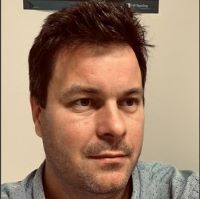 Jan Frič (Institute of Molecular Genetics and Faculty of Science, CZ)
Jan Frič (Institute of Molecular Genetics and Faculty of Science, CZ)
Jan Frič is a Doctor in immunology from Charles University in Prague. He experienced several stays abroad including 2 years at Hospital Saint Luis, Paris, France and 7 years at Singapore Immunology Network, Singapore. Currently, he is the head of department of modern immunotherapy at Institute of Haematology and Blood Transfusion, Prague and Principal Investigator at International Clinical Research Center at St. Anne’s University Hospital in Brno, Czechia. Jan is interested in translational research of innate immune system and its potential in cellular immunotherapy of haemato-oncologic disorders, in sepsis and aging.
—————————————————————————————————————————————————————–
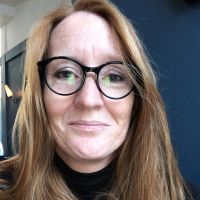 Emma Morris (University College London, UK)
Emma Morris (University College London, UK)
Emma Morris is a clinician scientist, clinically trained in hematology and allogeneic HSCT. Her current clinical practice is in HSCT, cellular and gene therapies for haematological malignancies and inherited immune defi-ciencies. She has developed and lead the national allogeneic HSCT centre for adults with primary immune deficiencies (PID) at the UCL Centre for Immunodefeciency and co-ordinates and international MDT.
Her basic science research focus is on T cell immunology, inherited immunodeficiencies, gene therapy and gene editing. Her group is interested in altering both the specificity and the function of gene-modified im-mune cells and stem cells. More recent research is focused on developing gene editing techniques as treat-ments for patients with PID. This research spans the entire translational pathway from animal models to in vitro experimental immunology to Phase I ‘first time in man’ clinical studies.
She was appointed Director of the UCL Division of Infection and Immunity in October 2019 and is the Direc-tor of the NIHR UCLH/UCL Biomedical Research Centre Inflammation, Immunity and Immunotherapeutics (III) Theme. She has various other leadership roles within UCL, UCLH and RFH. She is patron of the charity Haematology Cancer Care (HCC) which raises money for UCLH.
Emma Morris is a scientific founder of a UCL Spin-out, Quell Therapeutics Ltd, which is developing gene-engineered regulatory T cells for transplant tolerance and have received £84m series A financing.
She was elected to the Academy of Medical Sciences in 2020.
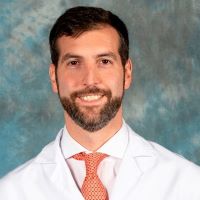
Victor Moreno (Start Madrid, ES)
Victor Moreno, MD, PhD is the Director of Clinical Research at START-Madrid-FJD. He obtained the Medical Degree by the University Complutense of Madrid in 2004 and completed his specialized formation in Medical Oncology at Hospital Universitario La Paz during 2005 and 2009. During 2008-2010 he obtained the Master Degree in Molecular Oncology by the CNIO (Spanish National Cancer Research Centre, Madrid). He obtained his PhD Doctorate, with European Mention and highest commendation in 2013 for his translational research in rectal cancer.
After finishing the residency period he obtained the Excellent Resident Grant, awarded to complete his training in Phase 1 oncology clinical trials in the Drug Development Unit of the Royal Marsden Hospital (Sutton, UK) during 2010-2011.
After the completion of the Fellowship, he returned to a Consultant position in Medical Oncology to the Hospital Universitario La Paz where he was member of the Neuro-Oncology and Gastrointestinal Tumors section and coordinator of the Oncology Phase I Unit. In 2013 he joined the initiated the Phase 1 program in the new center START-Madrid-Fundación Jimenez Diaz (FJD) as Clinical Researcher dedicated exclusively to early clinical trials and drug development with special focus on targeted therapies, cancer immunotherapy and adoptive cell therapy. His team has been actively involved in development of modified TCR for solid tumors including MAGE A10, MAGE-A4 and NY-ESO as well as TILs for different solid tumors. He has published more than 40 articles in main journals such as The New England Journal of Medicine, Nature, Journal of Clinical Oncology and Lancet Oncology among others.
—————————————————————————————————————————————————————
Session 2: How to develop a gene and cell cancer-killer: the clinical trials
Challenges in timely initiation and conduct of clinical trials in gene and cell therapies in haematology. From planning to trial authorisation to patient treatment and follow up
Session Chairs: Martina Schuessler-Lenz (Chair of EMA Committee for Advanced Therapies; Paul-Ehrlich-Institut, DE) & Ulrich Jaeger (Medizinische Universitsat Wien, AT)
—————————————————————————————————————————————————————–
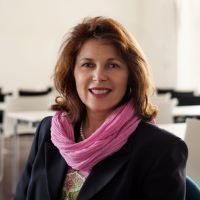 Martina Schuessler-Lenz (Chair of EMA Committee for Advanced Therapies; Paul-Ehrlich-Institut, DE)
Martina Schuessler-Lenz (Chair of EMA Committee for Advanced Therapies; Paul-Ehrlich-Institut, DE)
In 2020, Dr. Martina Schuessler-Lenz was elected on her second mandate as the Chair of the Committee for Advanced Therapies (CAT) of the European Medicines Agency’s (EMA). The CAT is the committee responsible for evaluating the quality, safety and efficacy of marketing authorisations of cell and gene therapies (Advanced Therapy Medicinal Products, ATMPs).
Dr. Schüssler-Lenz received her medical degree at Mainz University Hospital, Germany, worked many years in Hematology/Medical Oncology and in the pharmaceutical industry.
Since 2005 she is working as M.D. at the Paul-Ehrlich Institute in the Section Advanced Therapies and Tissue Preparations, where she has reviewed Advanced Therapies in clinical trials and marketing authorizations, and has provided advice to ATMP development and life cycle management. She is committed to facilitate the development of Advanced Therapies and has a specific focus in providing guidance to academic developers of ATMPs.
—————————————————————————————————————————————————————–
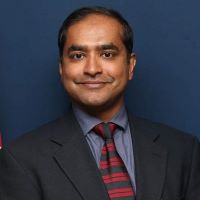 Adnan Jaigirdar (FDA, USA)
Adnan Jaigirdar (FDA, USA)
Adnan Jaigirdar is an oncologist in the Office of Tissues and Advanced Therapies (OTAT), Center for Biologics Evaluation and Research (CBER), U.S. Food and Drug Administration (FDA). More recently, he also served as the Acting Associate Director for Cell and Gene Therapy in the Oncology Center of Excellence (OCE), FDA. As an FDA regulator, he conducts key assessments of novel innovative therapies and clinical issues that surround the development and approval of new drugs and biologics in oncology.
He received his M.D. at the University of Cincinnati, during which time he trained in cancer immunology focusing on tumor vaccines, at the National Cancer Institute (NCI). He received his general surgery training at the University of California, San Francisco (UCSF), where he was also a post-doctoral research fellow at the UCSF Department of Surgery, Transplant Division, studying mechanisms of immune tolerance. During his surgical oncology clinical fellowship training, he also conducted cellular and immunotherapy research at the Surgery Branch, NCI.
Prior to joining the FDA, Dr. Jaigirdar was a practicing surgical oncologist in the U.S. Navy at the Walter Reed National Military Medical Center, Fort Belvoir, and a clinical assistant professor of surgery at Uniformed Services University of the Health Science (USUHS). He joined the FDA in 2016 and focuses on the review of investigational biologic and combination advanced therapies involving cell and gene therapy in solid tumors.
—————————————————————————————————————————————————————–
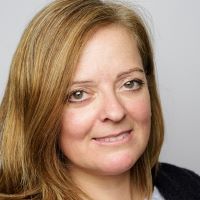
Laura Pearce (GSK, USA)
Laura Pearce is Clinical Development Lead, Cell and Gene Therapies at GSK. Laura has over 20 years of experience in global drug development—the majority focused in oncology and immuno-oncology. She has held senior positions in clinical development, clinical study operations, quality assurance and compliance, business development, alliance management, and global medical affairs—working across academic, non-profit, biotech, and pharmaceutical settings. Prior to joining GSK, Laura consulted with multiple leading groups in immuno-oncology including the Canadian Cancer Trials Group, as Director of Industry and Academic Research Partnerships and with the Cancer Research Institute in New York as Head of Clinical Alliances where she led strategic broad clinical trial collaborations between industry, academia, and non-profit groups. Laura has experience building oncology capabilities across multiple organizations and has expertise starting and leading multiple complex studies with innovative master/umbrella designs and in building collaborations for efficient study design and delivery, and in leading global teams integrating medical and clinical to optimize site engagement, relationship building, and trial execution.
—————————————————————————————————————————————————————–
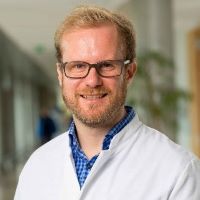
Michael Hudecek – (University of Würzburg, DE)
Michael Hudecek performed medical training at the University of Leipzig, Germany, where he also commenced his specialist training in hematology and oncology. In 2007, Michael joined the Fred Hutchinson Cancer Research Center in Seattle as a post-doctoral research fellow, where he trained in the laboratory of Prof. Stanley R. Riddell and worked on identifying and validating novel tumor antigens in hematologic malignancies, the design and functional optimization of chimeric antigen receptor (CAR) constructs, as well as defining optimal cellular compositions of CAR T-cell products. In 2012, Michael was recruited to the Universitätsklinikum Würzburg, Germany, where he established a translational research program on CAR T-cell immunotherapy. At present, this program comprises physicians, scientists, doctoral students, master students and technicians in a multidisciplinary, international team that performs cutting-edge research with focus on novel transformative CAR technologies, and first-in-man clinical application of novel CAR-T products. Michael is an extraordinary member of the Bavarian Academy of Sciences, and recipient of the 2017 Artur Pappenheim Award of the German Society for Hematology and Medical Oncology.
Session 3: How to bring a gene and cell cancer killer to patients: how to improve patient access
Session Chairs: Catarina Edfjäll (CDDF, SE); Hans Scheurer (MPE, NL)
—————————————————————————————————————————————————————–
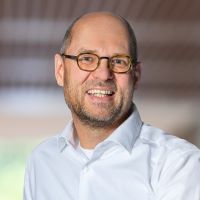
Bernd Eschgfaeller (Novartis, CH)
Dr. Bernd Eschgfäller is passionate about providing new treatment options to patients with life-threatening diseases.
Bernd is the Head of Cell & Gene Therapy Operations Europe at Novartis. In this role, he oversees the European patient operations and customer service deliveries along the entire cell journey, the onboarding and qualification of treatment centers and the center support in the order process. He has an extensive 20-year history of working in Lifesciences in pharma and biotech in Global, Regional and Local roles with strong experience in science, development and commercial. Bernd holds a Ph.D. in natural sciences from the ETH Zurich, Switzerland.
—————————————————————————————————————————————————————–
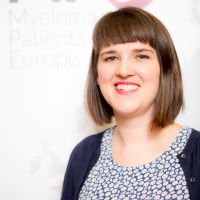
Kate Morgan (MPE, UK)
Kate Morgan is Head of Policy and Access at Myeloma Patients Europe (MPE). She holds a Bachelor’s degree in Government from the London School of Economics and Political Sciences and a Master’s degree in International and European Politics from the University of Edinburgh. She also holds a Diploma in Public Relations from the Chartered Institute for Public Relations. Her main area of interest is health policy, with a specific focus on policies affecting drug development and access in European countries.
Kate previously worked for eight years in the Policy Team at Myeloma UK, where she was involved in influencing a range of policy and reimbursement decisions affecting myeloma patient access to good quality care and effective new drugs. She was involved in a number of patient and public advisory panels in the UK healthcare system, including for the Scottish Medicines Consortium, the drug approval body in Scotland.
She been involved in a wide-range of patient organisation networks, both nationally and internationally – most recently chairing the Blood Cancers Alliance, an information-sharing network of haematological cancer charities in the UK.
Kate currently lives and works in Edinburgh, Scotland.
—————————————————————————————————————————————————————–
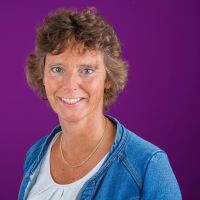 Carin Uyl-de Groot (Erasmus University Rotterdam, NL)
Carin Uyl-de Groot (Erasmus University Rotterdam, NL)
Carin A. Uyl-de Groot (1966) is Professor of Health Technology Assessment at the Erasmus University Rotterdam, the Netherlands. She is head of the section of Health Technology Assessment (HTA) of the Erasmus School of Health Policy&Management and director of the institute for Medical Technology Assessment (iMTA b.v.). She has been programme leader of cancer studies at the iMTA since 1994. She was chair of the Dutch Foundation of Technology Assessment in Health Care from 2011-2016. In 2014 she has been co-chair of the 17th European Congress of the International Society for PharmacoEconomic Outcomes Research (ISPOR) in Amsterdam. In 2018, she was chair to the public health and health economics track of the European Society of Medical Oncology (ESMO) conference in Munich.
Furthermore, she served as a member of the Dutch Committee on Expensive Cancer Drugs (CieBOM). Since September 2015 she is a member of the Dutch Health Council. Her research activities are mainly focused on cost-effectiveness and outcomes studies particularly in the cancer field. Her main interests consist of diagnostic and therapeutic technologies, economic studies linked to clinical studies, modelling studies, cost studies, quality of life studies, methodological issues and implementation studies. She has also been involved in the development of clinical practice guidelines. She is principal investigator of several cancer registries and outcomes studies. She is supervisor of many PhD students and serves as a reviewer for several (high impact) journals. She has presented her research in a variety of clinical and health economic journals, including Lancet Oncology, Nature Reviews, Journal of Clinical Oncology and Blood, and conferences. Her research activities are mainly focused on cost-effectiveness analyses of cancer diagnostics and treatments. Quality of life studies are an integral part of these studies. Her main interest consists of diagnostics and therapeutic technologies, economic studies linked to clinical studies, modelling studies, cost studies, quality of life studies, real world outcomes, methodological issues and implementation studies particularly in the cancer field. She is principal investigator of several cancer registries and outcomes studies (a.o, PHAROS (haematology), PERCEPTION (renal cell cancer), POSEIDON (lung cancer),CAPRI (prostate cancer), melanoma, colon cancer and head&neck cancer. She is supervisor of 12 PhD students.
Session 4: Future perspective in the eco-system
Session Chairs: Darko Milijkovic (GSK, CH); Jaap Verweij (CDDF, NL)
—————————————————————————————————————————————————————–
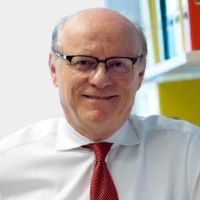 Nicolaus Kroeger (Medical Center Hamburg-Eppendorf, DE)
Nicolaus Kroeger (Medical Center Hamburg-Eppendorf, DE)
Dr. Nicolaus Kröger is Professor of Medicine and Medical Director of the Department of Stem Cell Transplantation at the University Medical Center Hamburg-Eppendorf, Germany. Prof. Kröger is board certified in Hematology-Oncology and Internal Medicine. Since 2018 he is President of the European Society of Blood and Marrow Transplantation (EBMT). He served also as chairman of the German Stem Cell Working Group (DAG-KBT) from 2014-2020 and is member of several editorial boards such as Blood, Haematologica, Bone Marrow Transplantation and Biology ofBlood and Marrow Transplantation. He is also member of numerous Scientific Committees such as ASH, EHA, and ESH. He has received several awards for his work to date including the prestigious EBMT van Bekkum Award in 2015. In 2020 he was awarded as Doctor Honoris Causa from the University Belgrade. Prof. Kröger has published extensively in his area of expertise and has contributed to more than 700 publications in peer-reviewed journals such as NEJM, Lancet, JCO, JNCI, PNAS, Blood and Leukemia.
—————————————————————————————————————————————————————–
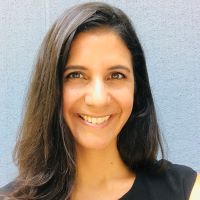
Emily Bratton (IQVIA, US)
As part of the Real-World Solutions Epidemiology & Outcomes Research team at IQVIA, Dr. Bratton is responsible for the development, analysis, and interpretation of observational studies (both retrospective and prospective) and low interventional clinical trials. She advises on the appropriate design and methods to address Sponsor and stakeholder research needs. Her areas of specialization and interest include: natural history studies, disease and drug registries, drug safety, and comparative effectiveness research. At IQVIA, she has been involved in the design and execution of both prospective and retrospective studies (as well as enriched solutions), with emphasis on challenging designs and innovative solutions. She also is a scientific leader who manages a team of epidemiologists. Dr. Bratton received her MSPH in Epidemiology (2008) and PhD in Infectious Disease Epidemiology (2012) from the University of North Carolina at Chapel Hill where she now holds an adjunct assistant professor position. She is based in Durham, NC (USA).
—————————————————————————————————————————————————————–
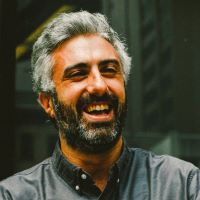
Thomas Clozel (Okwin, FR)
Thomas Clozel is the CEO and Co-Founder at Owkin, leading medical research and business intelligence. He is a former Assistant Professor of Clinical Onco-Hematology at Hopital Henri Mondor in Paris. Thomas is also a former member of Ari Melnick’s lab at the Weill Cornell Medical College where he co-led several projects focused on prediction of resistance to chemotherapy in B-cell lymphoma.